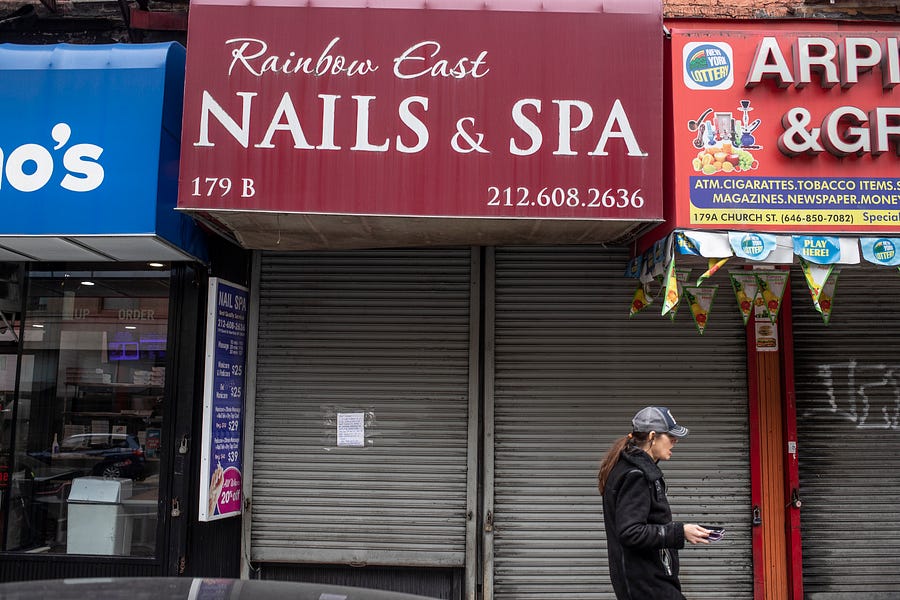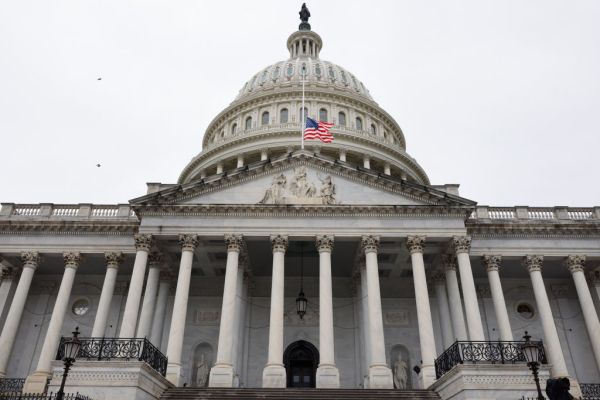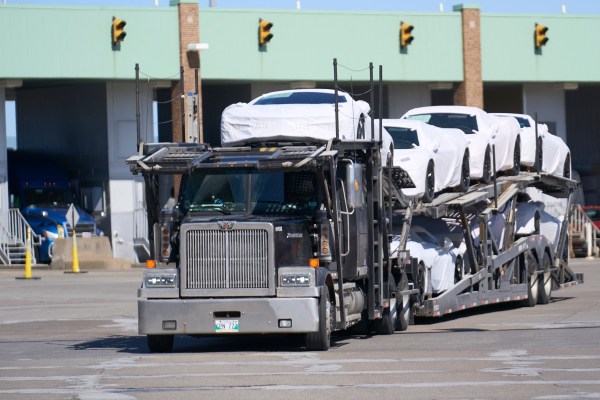The coronavirus pandemic has left very few of us immune from feelings of economic uncertainty, but it’s far worse for those who have lost their jobs, even temporarily. The retail and service industries in particular have seen jobs and whole businesses evaporate overnight. We all have favorite restaurants or small businesses that we hope will still be around whenever we can “return to normal,” whether that is in weeks or months. People with the means to do so try their best to order takeout from local eateries, or in my case drive by the cigar shop to pick up a box curbside, to chip in where we can. It’s not the same experience for the customer (the people, not the smokes, make the cigar shop), and the revenue is not enough for businesses to survive long term, but it’s something.
But what of the places that are absolutely closed? I live very close to a nail salon, which has been shuttered for weeks. The same is true of hair salons everywhere. Think of those workers, who are generally not wealthy and rely largely on tips and regular customers. Not only did most of their income evaporate the day their business shut down, but relief offered by the CARES Act is hard to access when it’s currently so difficult to apply for unemployment or small business loans. Those measures will eventually help such people, but it is still going to be rough.
As consumers, many of us are sitting home, unloading the dishwasher for the third time in one day or staring in the mirror at our shaggy hair. We fantasize about what we’ll do when we can finally get out: a sitdown meal out at our favorite place, that first visit to your stylist or nail salon, maybe that first trip to a live performance at a favorite club. Wouldn’t being there to welcome that business back be worth something, particularly if you still have a job and income? And particularly if, by the time you can do it, you haven’t spent any money on that treat in a while?
Here is my modest proposal: Why couldn’t there be a movement to auction, right now, online and from the comfort of home, the right to be among the first back to some businesses when they reopen, with the proceeds going to their workers?
Think about the hair salon. Appointments are going to be at a premium. There are no doubt many women—and men!—who would pay top dollar to be in that chair the first day or first week the salon is back in business. By the time things reopen, my hair may have that ‘70s-era Peter Frampton look, so I’d certainly pay a few bucks to guarantee I’d skate right in for a cut during what will surely be a busy time, particularly if my regular stylist was the beneficiary.
Imagine an online silent auction of the rights to salon appointments the first week it reopens (not even knowing when that is). The highest bidder (the golden ticket) gets the first appointment at the time of his or her choosing as soon as a reopen date is set. The next highest bid picks second, and so on, until the week is full.
The concept would only work for some businesses (and many that cater to the relatively privileged), but where it worked, it could really help to redistribute some dollars to the folks who need it. For example, imagine auctioning off reservations for tables for the first lunch at the Trump Hotel when the restaurant reopens—with the money going to the currently unemployed waiters and kitchen staff? What would be so wrong with a possible lobbyist and politico bidding war for those tables, with the staff benefitting? Of course these types of people likely are important enough to get a reservation anyway, but the “regulars” would take pride in helping the staff financially and would be armed for decades with ice-breakers like “you know, I had the first martini at the Willard bar after the coronavirus shutdown of 2020.”
Some more obvious examples: Bakeries could auction off the first orders for cakes and cookies; local breweries could take bids for the right to purchase specially brewed IPAs or lagers; fashion boutiques could offer up personal shopper sessions or special after-hours access.
Obviously, this idea works best on a small scale. It’s not a panacea to get the whole economy working again. But if you had the means and opportunity to do something like this—the permutations are many—for one business you love, wouldn’t you? And sometimes, helping that one person or business we have a connection to is the best contribution we can make.
Photograph by Victor J. Blue/Getty Images.







Please note that we at The Dispatch hold ourselves, our work, and our commenters to a higher standard than other places on the internet. We welcome comments that foster genuine debate or discussion—including comments critical of us or our work—but responses that include ad hominem attacks on fellow Dispatch members or are intended to stoke fear and anger may be moderated.
With your membership, you only have the ability to comment on The Morning Dispatch articles. Consider upgrading to join the conversation everywhere.